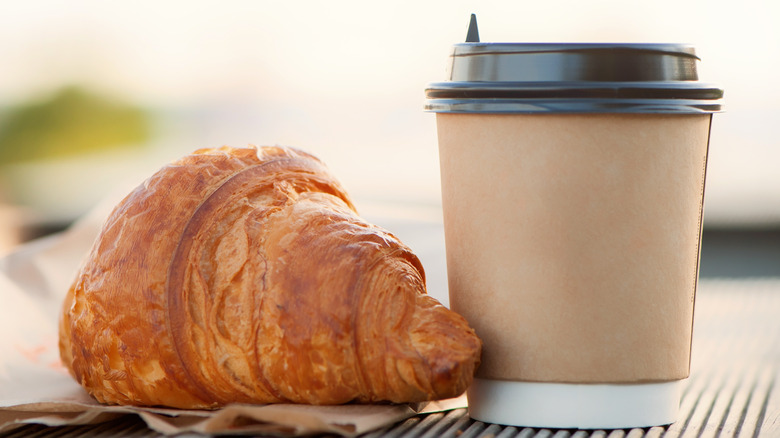Even Uber-Successful Coffee Chains Are Having To Brace For Inflation
There's nothing simpler than popping out to pick up a cup of coffee — some people might even argue it's crucial to their daily routine (or their very existence). Grabbing a coffee is certainly a popular thing to do, with Mordor Intelligence estimating the size of the U.S. coffee market to be over $25 billion. That's quite a few lattes.
While a hefty figure, digging into the numbers reveals that the coffee industry requires something of a caffeine boost. Many people choosing to work from home instead of traveling to offices has impacted the growth of coffee stores, according to Reuters, while a mighty nemesis has also been taking a swipe at the sector: inflation.
In July, the U.S. inflation rate was reported by The Guardian to be around 8.5%, resulting in higher costs for goods. A $739 billion Inflation Reduction Act and increased interest rates are designed to curb inflation, which has been elevated by war in Ukraine, supply chain issues, and sudden economic rebound from the COVID-19 pandemic, notes BBC News. However, coffee shops are struggling with rising costs, and even the biggest coffee players are preparing for hardship.
Coffee beans have surged in price
You can't have coffee without coffee beans — they're a pretty important ingredient. Yet the price of coffee beans has surged. The high price stems from the weather in Brazil, which is a major coffee exporter, Business Insider reports.
Even big coffee firms are being hit by high prices. Starbucks is being affected by expensive costs for labor and materials (via Reuters), and has tried to offset these by raising prices by 5%, according to Insider, as well as slashing promotions and marketing.
Dunkin' has also raised prices, leading to a drop in footfall, reports Modern Retail. Elsewhere, Caribou Coffee has stockpiled essentials including coffee, chocolate, and packaging to try to avoid supply chain issues, but has been impacted by a 10% surge in construction costs, details Bloomberg.
Small coffee shops are also affected, but are less likely to have the financial backing of the major brands. Fresh Cup Magazine reports small operators raising prices, axing packaging, and investing in machine processes, while Modern Retail describes businesses creating exclusive events to draw customers in.

